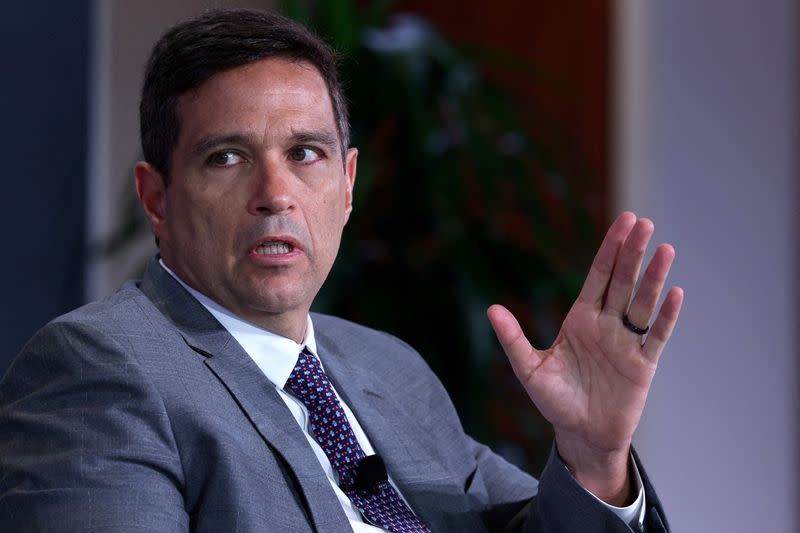Brazil central bank chief says bank's autonomy challenges were overcome

BRASILIA (Reuters) - Brazil's central bank chief, Roberto Campos Neto, said on Monday that the bank successfully overcame some challenges to its autonomy posed by the new administration of President Luiz Inacio Lula da Silva, despite what he termed some "noises" in the past year.
Speaking at an institutional event, he said the central bank managed to maintain decisions based on technical guidelines throughout this new government in which, for the first time, the new executive branch had to coexist with a central bank chief chosen by the previous administration.
"Obviously there were noises from the first big autonomy test, but I think they were overcome," Campos Neto said.
Lula, a leftist, took office in January amid skepticism toward monetary policy and inflation targets, which he deemed excessively low and detrimental to economic growth.
However, his government in June maintained the inflation target at 3% for 2024 and beyond, a position advocated by the central bank.
Policymakers initiated an easing cycle in August after keeping interest rates unchanged for nearly a year. So far, borrowing costs have dropped by 150 basis points to 12.25%.
Campos Neto, whose term ends in December 2024, said he was frustrated by the central bank's inability to improve working conditions of staff. He acknowledged dissatisfaction among central bank employees regarding compensation and benefits.
He also mentioned that the central bank has a medium-term agenda involving the financial and administrative autonomy of the institution.
Senator Vanderlan Cardoso proposed in November a constitutional amendment along these lines, arguing that allowing the use of seigniorage - usually defined as a profit made from printing money - as a financing source for the bank's activities is consistent with the practices of many central banks worldwide.
(Reporting by Marcela Ayres in Brasilia; Editing by Matthew Lewis)

 Yahoo Finance
Yahoo Finance 